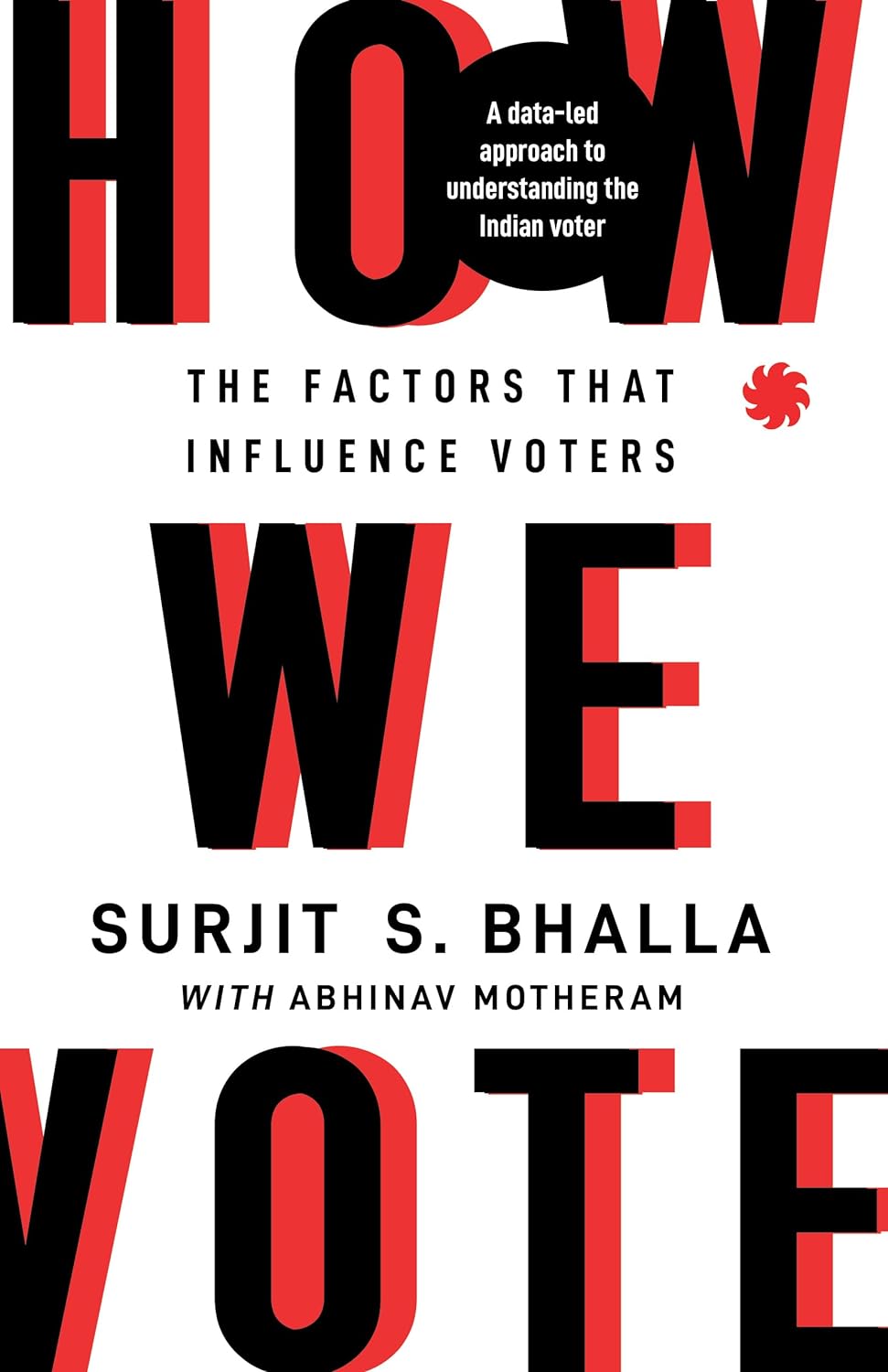HOW WE VOTE The Factors That Influence Voters
1. Surjit S. Bhalla was executive director for India, Sri Lanka, Bangladesh and Bhutan at the IMF and served on the PM’s Economic Advisory Council. He has also had stints at the World Bank, the Brookings Institution, Deutsche Bank and Goldman Sachs, and was founder-chairman of Oxus Investments. He has been a contributing editor for the Indian Express. He is the author of six books, including Imagine There’s No Country (2002) and The New Wealth of Nations (2017). His last book, Citizen Raj (2019), analysed Indian elections since 1952. He has a PhD in economics from Princeton University. 2. Abhinav Motheram works as a data science consultant at LEAD, Krea University. His research interests lie at the intersection of data quality, processes of data generation and related fields of survey methods. He holds a masters in economics from BITS Pilani. ... Read more Read less
India has transformed and much has happened since the first Lok Sabha elections in 1951–52. Social media, AI and technologies make it easy to spin narratives and evade accountability, and to glibly manufacture content, data and These threaten the development of a responsible civil society.
But then what really matters to voters? Times may have changed, but the substantive basis on which people vote – their perception of leadership and the improvement in their well-being – remains constant. Economist Surjit S. Bhalla integrates politics, economics and psephology to offer insights into how voters think as India heads into its eighteenth general election.
This book examines historical voting patterns and reveals how these correlate to changes in income, employment, welfare schemes, gender equality and much else. It looks at future conundrums like delimitation. It considers how voter attitudes have changed. This deep dive into data comes up with some counter-intuitive conclusions. Whichever way the 2024 elections go, the reader will gain a better understanding of the hows and whys of voter choices.











